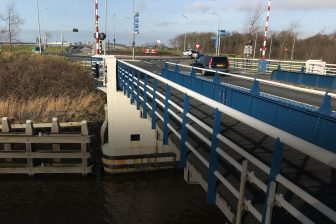Development of the TEN in South-East Europe
Brussels, Belgium – The second annual ministerial meeting for the development of the principal South-East Europe regional transport network has taken place in Brussels, attended by Jacques Barrot, Vice-President of the European Commission, and the Transport Ministers of Albania, Bosnia-Herzegovina, Croatia, the Former Yugoslav Republic of Macedonia, Montenegro, Serbia and Kosovo (UNMIK). The purpose of today’s meeting was to promote regional cooperation in developing the transport networks and thereby to contribute to the regional integration of the partners. The high-level participants signed a political resolution as well as a more specific declaration dealing with cooperation in the rail sector.
At the meeting Jacques Barrot, the Commissioner responsible for transport, stressed the importance of closer cooperation, declaring that "the development of an adequate and reliable transport network is a precondition for any region’s economic progress and social integration. Furthermore, by supporting the deployment of the principal transport network in South-East Europe, we will also benefit from the extension of the European market and from the more harmonious development of our entire continent".
This regional cooperation will have the effect not only of promoting the technical development of the transport networks but also of facilitating border crossings. It will cover the rail networks, the road sector, inland waterway transport, and ports and airports – in short, everything that makes up the principal regional transport network.
The resolution signed today reinforces the political commitment of the participants at regional level. It seeks to develop sustainable transport infrastructures, while at the same time focusing on various operational and regulatory matters of regional importance that will help to bring the signatories closer into line with the Community acquis. The development of the rail sector will concentrate, more particularly, on improving access to the national networks, on facilitating border crossings and on ensuring a high level of technical interoperability between the partners.
The programme of cooperation with the West Balkans region dates back to the beginning of 2000. The principal network was defined in a regional study conducted in 2003 and was officially designated as such in 2004 in Luxembourg, where the signatories of a provisional Memorandum of Understanding agreed to engage in regional cooperation. This agreement provided for the Transport Ministers concerned to meet annually, with the first such meeting taking place on 10 November 2005 in Skopje.
The South-East Europe Transport Observatory (SEETO), located in Belgrade and financed by the European Commission, became operational in 2005. SEETO is responsible for developing the multiannual indicative plans which determine the conditions of transport on the principal network, define the measures for ensuring better cooperation and designate the priority projects. Its Steering Committee will oversee the actual implementation of these measures designed to encourage the development of the regional transport network.
U las zojuist één van de gratis premium artikelen
Onbeperkt lezen? Profiteer nu van de introductieaanbieding voor € 10,- per maand.
Bent u al abonnee?



